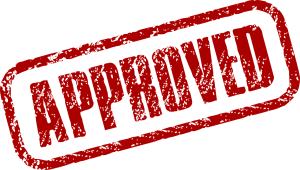Will I Get Approved For a Credit Card?
 Many people with either no credit or a poor credit history ask themselves “Will I get a credit card?”. Banks and card issuers use a lot of factors to determines ones eligibility, such as payment history, credit score and income. If you don’t have any credit, or if you have poor credit, you’ll certainly have a tougher road ahead of you, but you can successfully get a credit card if you know the right steps to take.
Many people with either no credit or a poor credit history ask themselves “Will I get a credit card?”. Banks and card issuers use a lot of factors to determines ones eligibility, such as payment history, credit score and income. If you don’t have any credit, or if you have poor credit, you’ll certainly have a tougher road ahead of you, but you can successfully get a credit card if you know the right steps to take.
A decade ago, credit cards were given out more frequently than they are today. However, with the downwards trend of the job and house market, as well as other financial sectors, the card companies have become a bit more strict on who they issue credit cards to. Now, they take many factors into consideration before handing over that dangerous piece of plastic.
One of the most important factors in determining ones eligibility to receive a credit card is his or her FICO credit score. This number, ranging from 350 to around 850, is your average score based on the three major credit reporting bureaus – Trans Union, Equifax and Experian. While these bureaus are based in the U.S., their scores are still frequently used in other countries as well.
If you’re a U.S. resident, you can get a free credit report once a year from annualcreditreport.com. Here, you enter in your name, address and social security number and it will pull a report from each of the three major bureaus. While many companies offer so-called “free credit reports”, you have to use caution with them, as most of them require you to subscribe with a payment plan before receiving your report.
Card issuers use more than just ones credit score to determine if they’ll give you a credit card. Another factor is your debt to income ratio. Ideally, they want to see that you have a substantially higher amount of income than you do debt. When they see an individual with a large amount of debt and little income, it puts them in a high risk category, which means they probably wont be issued a card.
We all know that paying your bills on time is important to avoid late fees, but it also helps with your credit history. Card issuers will look at your past payment history on both open and closed accounts to see how punctual you are with your payments. If you’ve been paying your bills on time, it’s a good sign you’ll continue to do so with a credit card. On the other hand, if you’ve been consistently late paying your bills, then the company may not want to issue you a card.
Having a credit card is sign of your financial freedom. Once you have one in your possession, you no longer have to carry around a wad of cash in your wallet. Although, you need to be responsible once you have one, as it’s easily to allow your debt to go out of control. For this reason, you should only use your card when you have the money to immediately pay it off.
